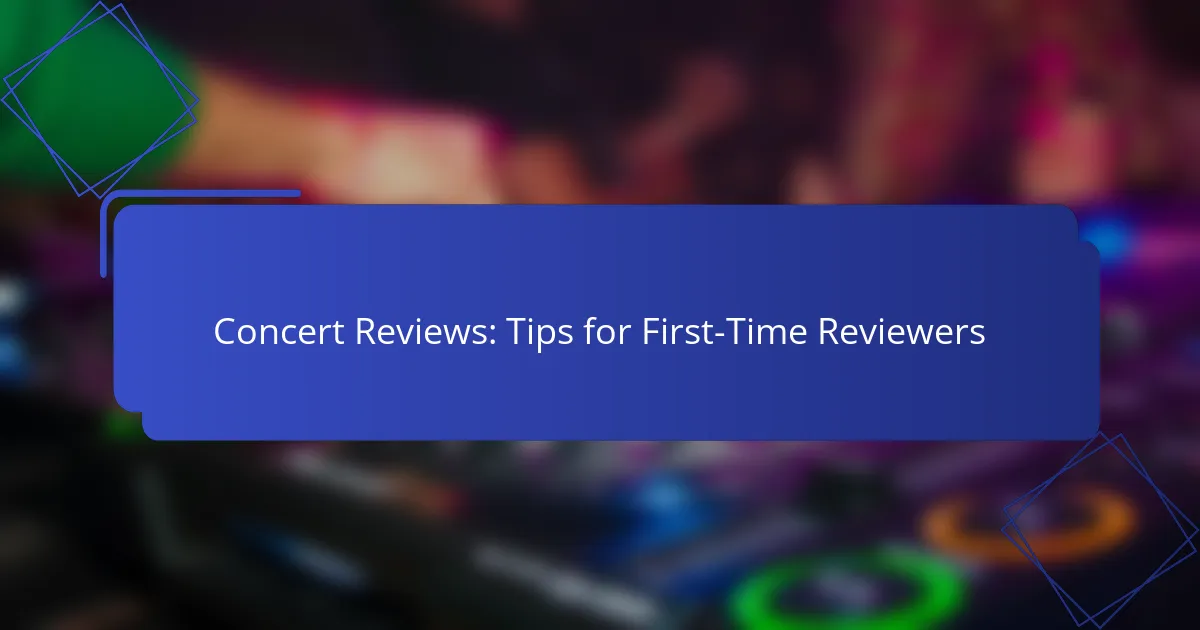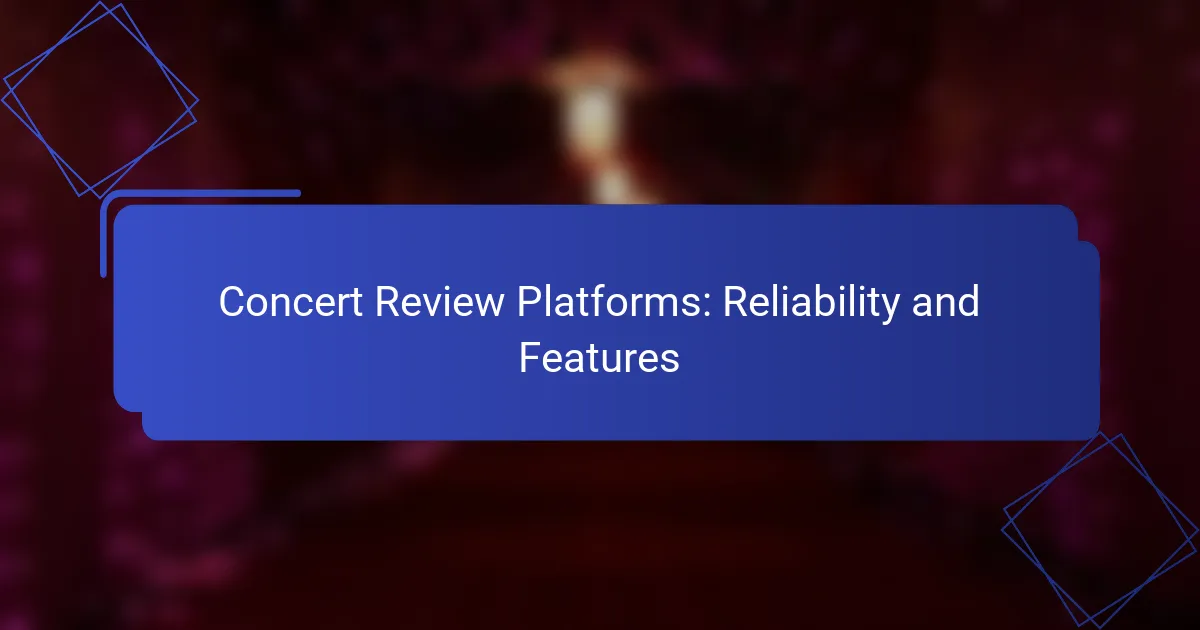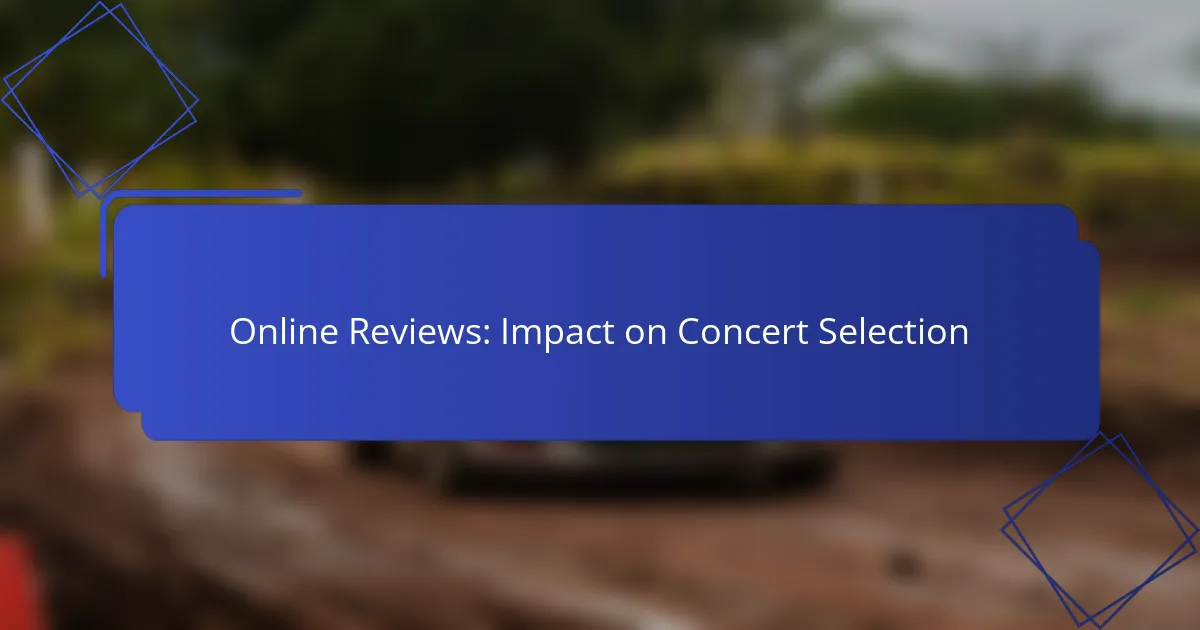Writing a concert review for the first time can be an exciting yet daunting task. To create a compelling review, it’s essential to conduct thorough research, gather the right equipment, and understand the concert format. By focusing on key elements like venue details, performance quality, and audience reactions, you can effectively convey the experience to your readers.
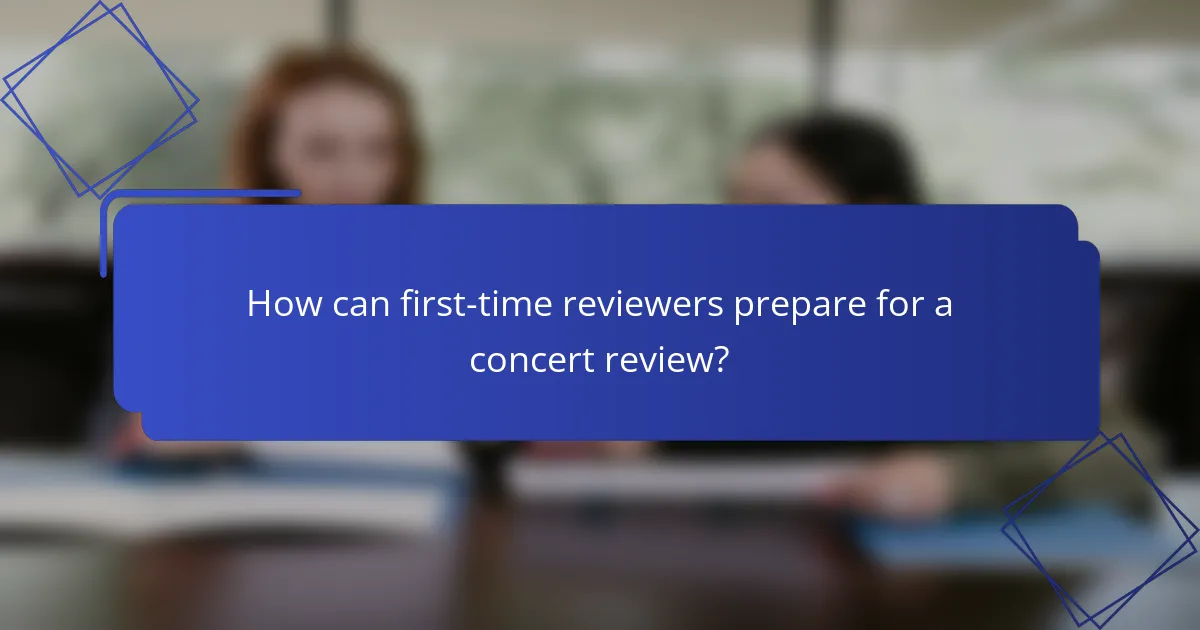
How can first-time reviewers prepare for a concert review?
First-time reviewers can prepare for a concert review by conducting thorough research, gathering essential equipment, and understanding the concert format. These steps will enhance the quality of their review and ensure they capture the experience effectively.
Research the artist and venue
Understanding the artist’s background and the venue’s history is crucial for a meaningful review. Look into the artist’s discography, previous performances, and any notable achievements. Familiarize yourself with the venue’s layout, acoustics, and capacity, as these factors can influence the concert experience.
Check for any specific house rules or regulations that might affect your review, such as photography policies or audience behavior expectations. This knowledge will help you provide context in your review and better assess the overall atmosphere.
Gather necessary equipment
Having the right equipment is essential for capturing your concert experience. Bring a notepad or a digital device for taking notes, as well as a camera or smartphone if photography is allowed. Consider using noise-canceling headphones to enhance your listening experience during the concert.
Additionally, ensure that your devices are fully charged and that you have backup storage options, like extra memory cards or cloud access, to avoid missing any important moments.
Understand the concert format
Concerts can vary widely in format, including solo performances, band shows, or festivals. Familiarize yourself with the setlist structure, whether there will be opening acts, and how long the performance is expected to last. This knowledge will help you anticipate key moments and structure your review accordingly.
Consider the genre of music as well, as different styles may have unique audience interactions and performance expectations. Understanding these nuances will enrich your review and provide readers with a clearer picture of the event.
Set clear review objectives
Before attending the concert, define what you want to achieve with your review. Are you focusing on the performance quality, audience engagement, or the venue’s atmosphere? Setting clear objectives will guide your observations and help you stay focused during the event.
Consider creating a checklist of key elements to evaluate, such as vocal performance, stage presence, and overall production quality. This will ensure you cover all important aspects in your review.
Plan your arrival time
Arriving early is crucial for first-time reviewers to get a feel for the venue and the audience. Aim to arrive at least 30 minutes to an hour before the concert starts. This allows you to find your seat, take initial notes, and capture the pre-show atmosphere.
Check traffic and parking conditions in advance, especially if the venue is in a busy area. Being punctual will help you avoid stress and ensure you don’t miss any part of the performance, which is vital for a comprehensive review.

What should be included in a concert review?
A concert review should encompass key elements such as venue details, performance quality, audience reactions, and standout moments. These components help paint a vivid picture of the concert experience for readers who were not in attendance.
Set the scene with venue details
Begin your review by describing the venue where the concert took place. Mention the location, capacity, and atmosphere, as these factors can significantly influence the overall experience. For instance, a small, intimate club offers a different vibe compared to a large stadium.
Include specifics like the layout, sound quality, and any unique features of the venue. If the concert was held outdoors, note the weather conditions and how they affected the performance.
Describe the performance quality
Evaluate the musicians’ technical skills, stage presence, and overall execution of the setlist. Discuss how well they engaged with the audience and if they delivered a polished performance or had any noticeable flaws.
Consider mentioning the setlist’s variety and how it flowed throughout the concert. A well-curated mix of hits and deeper cuts can enhance the experience, while a repetitive selection may detract from it.
Include audience reactions
Audience reactions are a vital part of the concert atmosphere. Describe how the crowd responded to different songs, whether through singing along, dancing, or cheering. This can provide insight into the connection between the performers and the audience.
Note any standout moments, such as a particularly enthusiastic reaction or a sing-along that brought everyone together. These details can help convey the concert’s energy and emotional impact.
Highlight standout moments
Identify key moments that defined the concert, such as unexpected song choices, guest appearances, or emotional speeches from the artists. These highlights can make your review more engaging and memorable for readers.
Consider including anecdotes or personal reflections on why these moments resonated with you. This adds a personal touch and can help readers feel more connected to the experience you are describing.

How to structure a concert review effectively?
To structure a concert review effectively, focus on a clear introduction, a chronological recounting of the event, and a personal conclusion. This approach helps readers understand the experience and your perspective on the performance.
Use an engaging introduction
Your introduction should capture the reader’s attention and set the tone for the review. Start with a vivid description of the venue or the atmosphere, or share a personal anecdote related to the artist or genre.
For example, mentioning the excitement in the crowd or the unique decor of the venue can draw readers in. Aim for a hook that makes them want to read more about the concert experience.
Follow a chronological format
Organizing your review chronologically helps readers follow the flow of the concert. Start with the opening act, if there was one, and move through the performance in the order it occurred.
Highlight key moments, such as standout songs, audience interactions, or special effects. This structure allows you to build a narrative that reflects the concert’s progression and keeps the reader engaged.
Conclude with personal impressions
Your conclusion should summarize your overall feelings about the concert. Reflect on what made the performance memorable, whether it was the artist’s energy, the setlist, or the crowd’s reaction.
Consider including a recommendation for potential attendees or a final thought that encapsulates your experience. This personal touch adds depth and encourages readers to connect with your perspective.
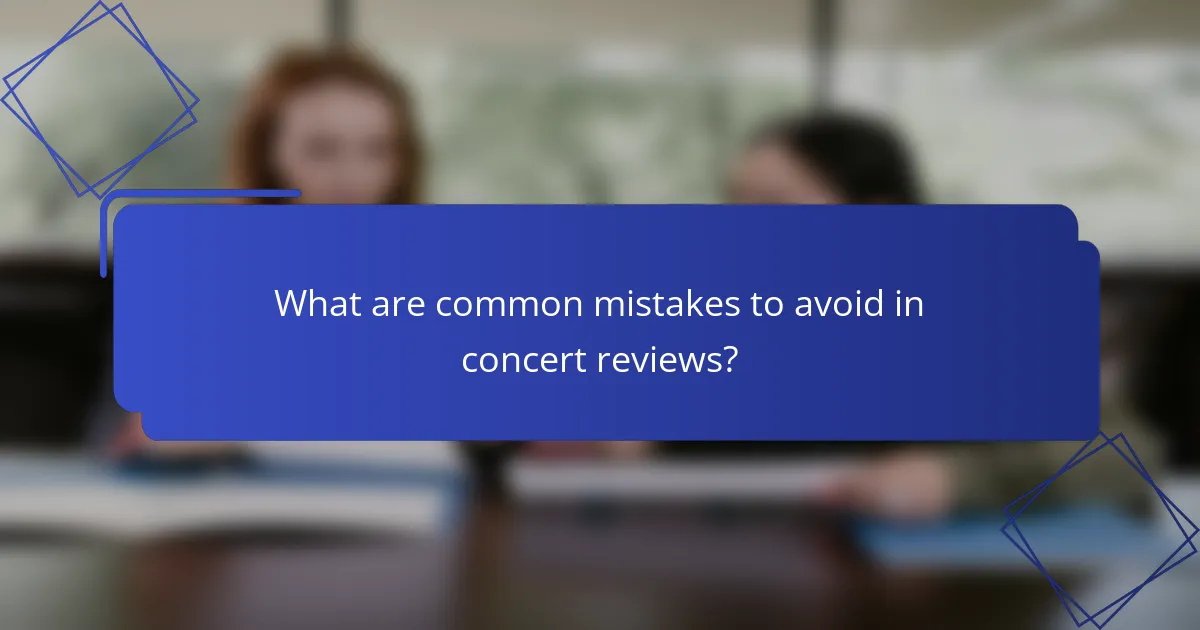
What are common mistakes to avoid in concert reviews?
Common mistakes in concert reviews include using overly technical jargon, neglecting the audience experience, and failing to proofread your work. Avoiding these pitfalls can enhance the clarity and impact of your review.
Overly technical jargon
Using overly technical jargon can alienate readers who may not be familiar with specific musical terms or concepts. Instead, aim for accessible language that conveys your thoughts clearly without assuming expert knowledge.
For example, rather than discussing “time signatures” or “modal scales,” focus on how the music made you feel or the overall vibe of the performance. This approach allows a broader audience to connect with your review.
Neglecting the audience experience
Focusing solely on the performance without considering the audience experience can lead to a one-dimensional review. Remember that concerts are communal events, and the atmosphere plays a crucial role in the overall experience.
Incorporate observations about the crowd’s reactions, the venue’s ambiance, and how these elements contributed to or detracted from the performance. This will provide a more holistic view of the concert.
Failing to proofread
Failing to proofread can result in errors that distract from your message and undermine your credibility as a reviewer. Take the time to carefully read through your review to catch typos, grammatical mistakes, and unclear phrasing.
Consider reading your review aloud or asking a friend to review it for clarity and coherence. This extra step can significantly improve the quality of your writing and ensure your insights are communicated effectively.
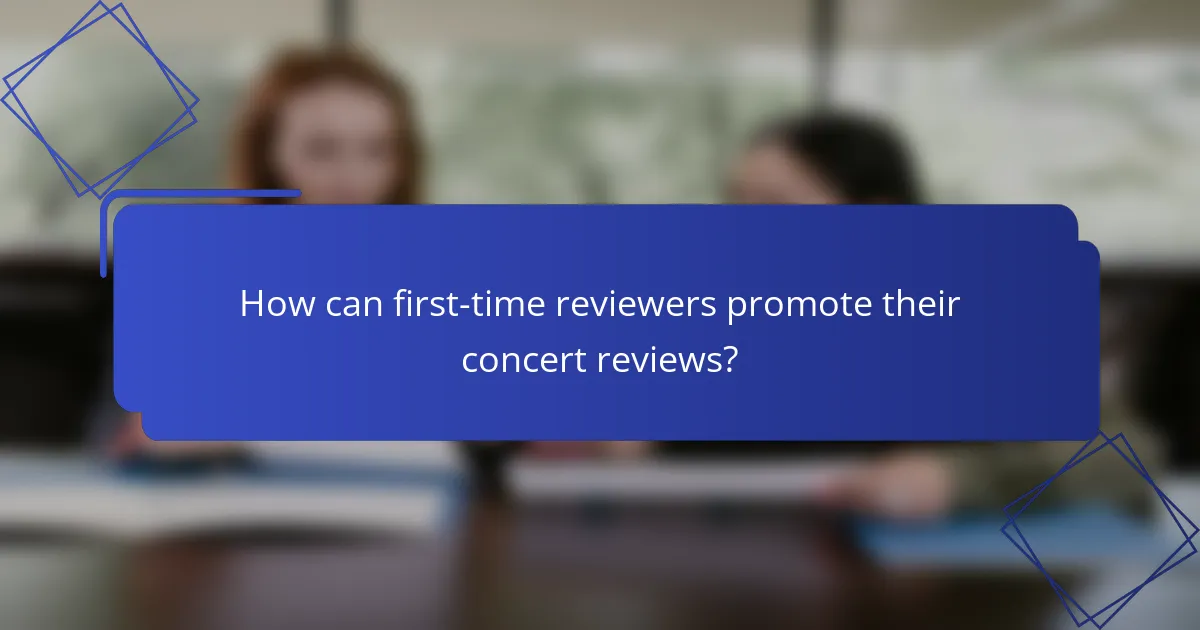
How can first-time reviewers promote their concert reviews?
First-time reviewers can effectively promote their concert reviews by leveraging various online platforms and engaging with their audience. Utilizing social media, connecting with local music communities, and collaborating with other reviewers can significantly increase visibility and readership.
Utilize social media platforms
Social media platforms are powerful tools for promoting concert reviews. By sharing links to your reviews on platforms like Facebook, Twitter, and Instagram, you can reach a wider audience and engage with fans who are interested in the concert experience.
Consider creating visually appealing posts that include images or short clips from the concert. Use relevant hashtags to increase discoverability, such as #ConcertReview or #LiveMusic, which can attract users searching for related content.
Engage with your audience by responding to comments and encouraging discussions about the concert. This interaction not only builds a community but also enhances the visibility of your reviews as more people share and comment on your posts.
